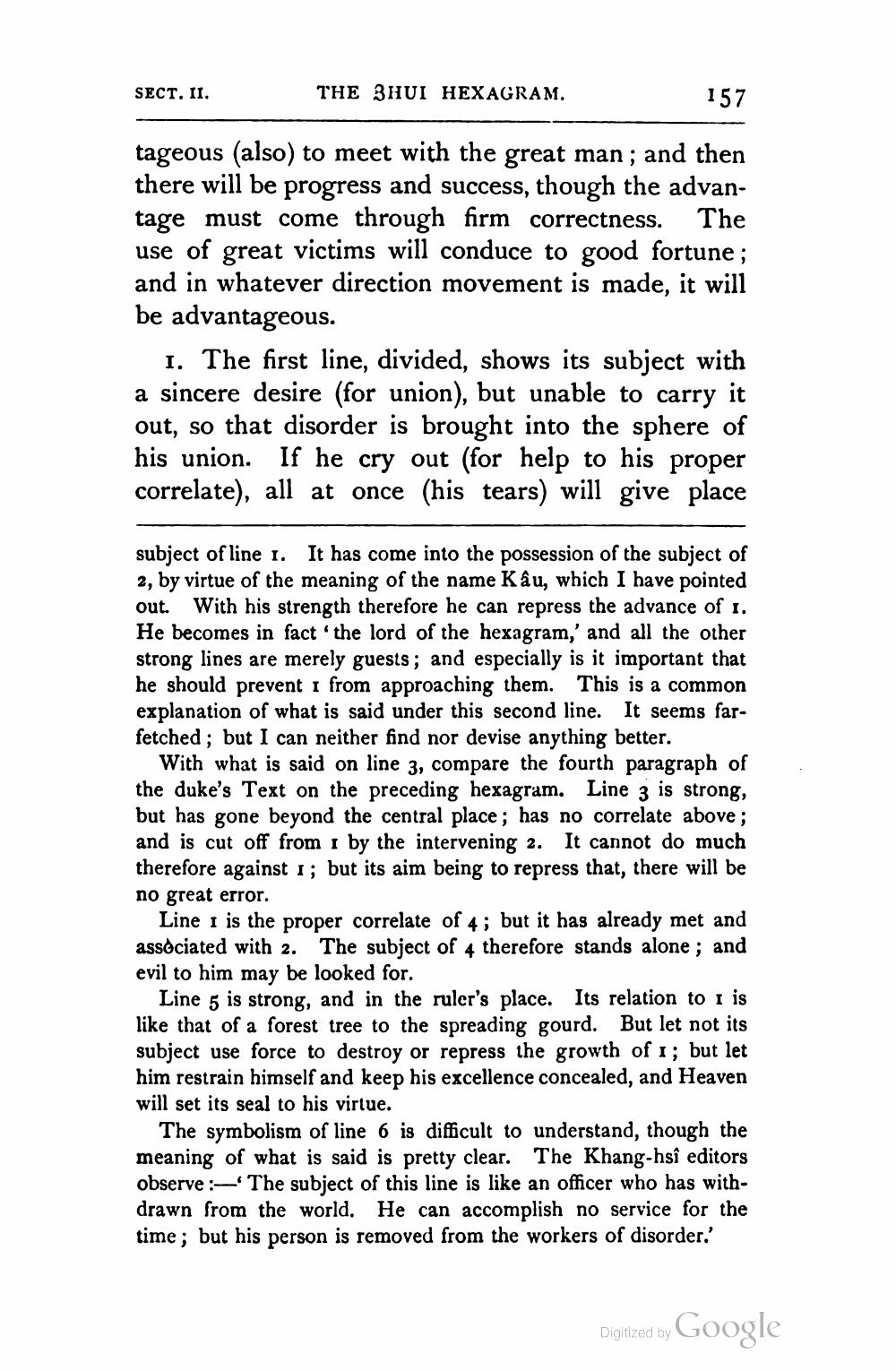________________
SECT. II.
THE ZHUI HEXAGRAM.
157
tageous (also) to meet with the great man; and then there will be progress and success, though the advantage must come through firm correctness. The use of great victims will conduce to good fortune; and in whatever direction movement is made, it will be advantageous.
1. The first line, divided, shows its subject with a sincere desire (for union), but unable to carry it out, so that disorder is brought into the sphere of his union. If he cry out (for help to his proper correlate), all at once (his tears) will give place
subject of line 1. It has come into the possession of the subject of 2, by virtue of the meaning of the name Kâu, which I have pointed out. With his strength therefore he can repress the advance of 1, He becomes in fact 'the lord of the hexagram,' and all the other strong lines are merely guests; and especially is it important that he should prevent 1 from approaching them. This is a common explanation of what is said under this second line. It seems farfetched; but I can neither find nor devise anything better.
With what is said on line 3, compare the fourth paragraph of the duke's Text on the preceding hexagram. Line 3 is strong, but has gone beyond the central place; has no correlate above; and is cut off from 1 by the intervening 2. It cannot do much therefore against 1; but its aim being to repress that, there will be no great error.
Line 1 is the proper correlate of 4; but it has already met and associated with 2. The subject of 4 therefore stands alone; and evil to him may be looked for.
Line 5 is strong, and in the ruler's place. Its relation to i is like that of a forest tree to the spreading gourd. But let not its
t use force to destroy or repress the growth of 1; but let him restrain himself and keep his excellence concealed, and Heaven will set its seal to his virtue.
The symbolism of line 6 is difficult to understand, though the meaning of what is said is pretty clear. The Khang-hsî editors observe: The subject of this line is like an officer who has withdrawn from the world. He can accomplish no service for the time; but his person is removed from the workers of disorder.'
Digitized by Google




